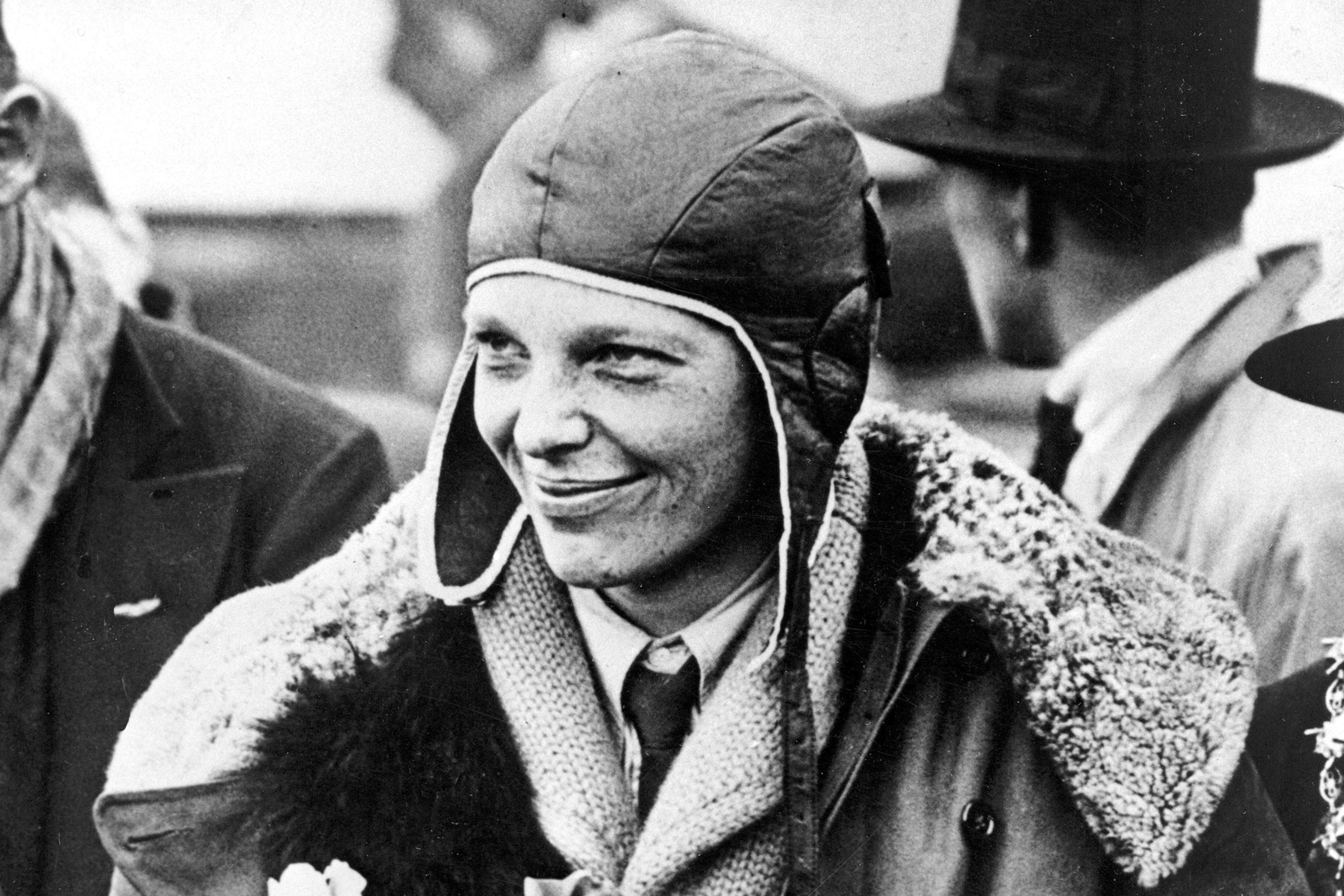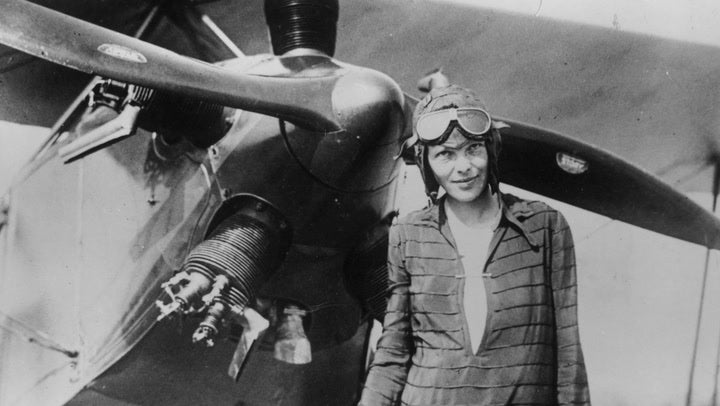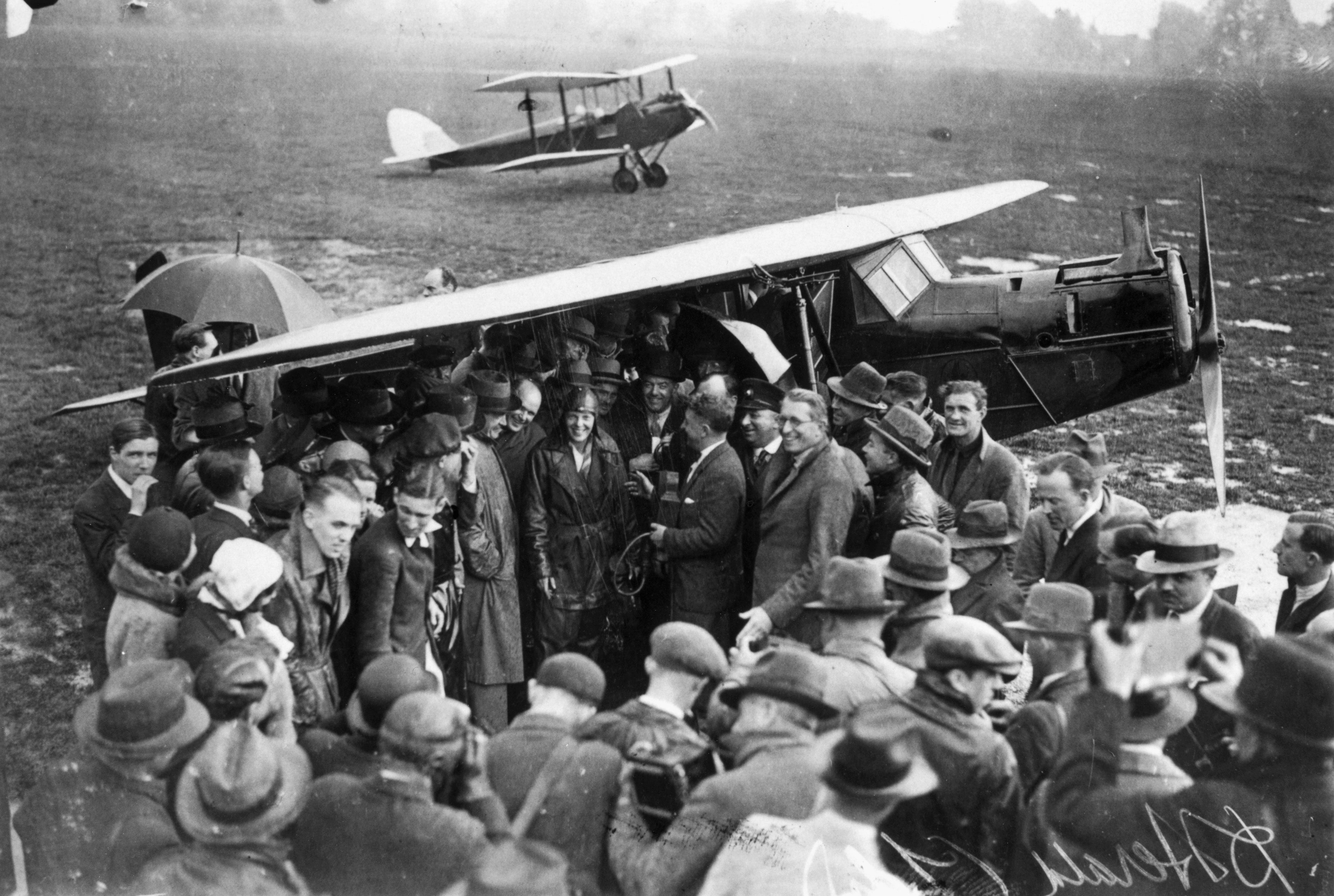Everything we know about the potential discovery Amelia Earhart’s long-lost plane
What happened to the pioneering American pilot, who disappeared over the Pacific in 1937, remains one of the 20th century’s most enduring mysteries


Your support helps us to tell the story
From reproductive rights to climate change to Big Tech, The Independent is on the ground when the story is developing. Whether it's investigating the financials of Elon Musk's pro-Trump PAC or producing our latest documentary, 'The A Word', which shines a light on the American women fighting for reproductive rights, we know how important it is to parse out the facts from the messaging.
At such a critical moment in US history, we need reporters on the ground. Your donation allows us to keep sending journalists to speak to both sides of the story.
The Independent is trusted by Americans across the entire political spectrum. And unlike many other quality news outlets, we choose not to lock Americans out of our reporting and analysis with paywalls. We believe quality journalism should be available to everyone, paid for by those who can afford it.
Your support makes all the difference.“On 2 July 1937, Amelia Earhart and navigator Fred Noonan took off from Papua New Guinea, nearing the end of their record-setting journey around the world never to be seen again. Until today.”
“Deep Sea Vision found what appears to be Earhart’s Lockheed 10-E Electra.”
That message was posted on Instagram by the South Carolina-based underwater exploration company on 27 January alongside a series of yellow sonar photographs of a distinctly plane-shaped object lying 16,000 feet below the waves on the floor of the Pacific Ocean.
The Charleston company believes that shape could just be the missing plane in which the legendary American aviatrix Amelia Earhart disappeared 87 years ago, a discovery that promises to solve one of the 20th century’s most enduring mysteries.
Deep Sea Vision’s 16-member team used a state-of-the-art “Hugin” undersea drone to survey more than 5,200 square miles of the Pacific before it found what it believes to be the wreck of Earhart’s plane.
The company’s thrilling discovery – if that is what it proves to be – was made possible by Tony Romeo, a pilot and former US Air Force intelligence officer, who sold off a commercial real estate portfolio in order to bankroll the $11m hunt for Earhart.
“This is maybe the most exciting thing I’ll ever do in my life,” Mr Romeo told The Wall Street Journal.
“I feel like a 10-year-old going on a treasure hunt.
“We always felt that a group of pilots were the ones that are going to solve this, and not the mariners.”
Earhart, who was born in Atchison, Kansas, on 24 July 1897, was a natural adventurer who saw her first plane at the Iowa State Fair in Des Moines in 1907, obtained her pilot’s licence in 1922 and became the first female passenger to cross the Atlantic by air in 1928, just a year after Charles Lindbergh’s celebrated solo flight.
Having been flown out of Trepassey Harbor, Newfoundland, in a Fokker F.VIIb on 17 June by pilot Wilmer Stultz and landed in Pwll near Burry Port in South Wales almost 21 hours later, Earhart quickly became a celebrity, nicknamed “Lady Lindy”, sponsored by Lucky Strike cigarettes and paid handsomely to undertake a lengthy lecture tour.
She was dismissive of her role in the exploit, however, remarking: “Stultz did all the flying – had to. I was just baggage, like a sack of potatoes... Maybe someday I’ll try it alone.”

She did precisely that four years later, setting out from Newfoundland alone on 20 May 1932 in a Lockheed Vega 5B and arriving in a cow pasture in Culmore, just north of Derry in Northern Ireland.
Although she had been aiming for Paris, Culmore was close enough and the achievement brought her worldwide fame and the United States Distinguished Flying Cross, France’s Legion of Honour and the National Geographic Society’s Gold Medal for her trouble, as well as the hearty congratulations of President Herbert Hoover.
Her disappearance in 1937 alongside Noonan, her navigator, came during an attempt to become the first woman to complete a circumnavigational flight of the globe, setting out from Miami, Florida, on 1 June after a botched first attempt on a journey that would take the duo across South America, Africa, the Indian subcontinent and South East Asia.
Earhart and Noonan were last seen at Lae Airfield in New Guinea on 2 July during the penultimate refuelling stop of the attempt before losing contact not long afterwards near Howland Island, en route to Honolulu in Hawaii for the final 7,000-mile leg of her 29,000-mile round trip.
Neither Earhart, Noonan nor their Lockheed were found despite the US Navy and Coast Guard mounting the largest search-and-rescue operation in its history.

The pair were finally declared dead in absentia on 5 January 1939 but her legacy has remained a source of fascination ever since and inspired songs by Joni Mitchell and The Handsome Family, film biopics starring the likes of Rosalind Russell, Diane Keaton and Hilary Swank and even a Barbie doll in 2018.
According to Mr Romeo, Deep Sea Vision’s submersible has now photographed what the team believes is the missing plane around 100 miles off Howland Island.
However, rival experts are preaching caution against what they consider to be over-excitement about the find, given that several competing explanations for Earhart’s disappearance have also been offered.
Ric Gillespie, an expert on the doomed pilot’s career, told CBS News in 2018 that he believes she actually crash-landed on Gardner Island – 350 nautical miles from Howland – and spent a week calling out for help before finally expiring when her plane was washed out to sea.
Mr Gillespie reported people hearing distress calls believed to be from Earhart as far away as Florida, Texas, Iowa and Canada on ham radio sets.
The expert’s own organisation, the International Group for Historic Aircraft Recovery, also claims to have found its own evidence, including human bones, to prove its counter-theory, according to CBS.
Join our commenting forum
Join thought-provoking conversations, follow other Independent readers and see their replies
Comments